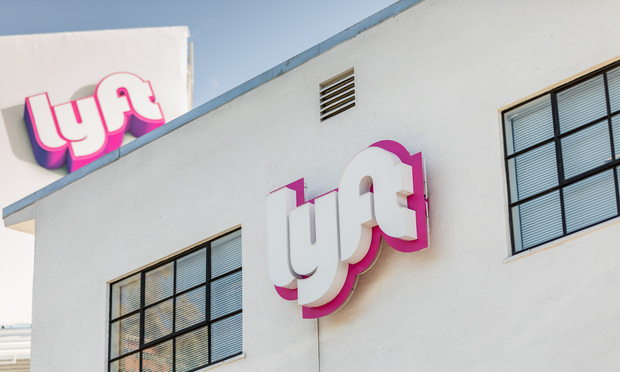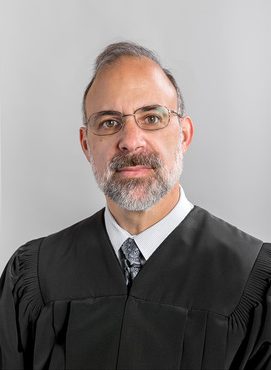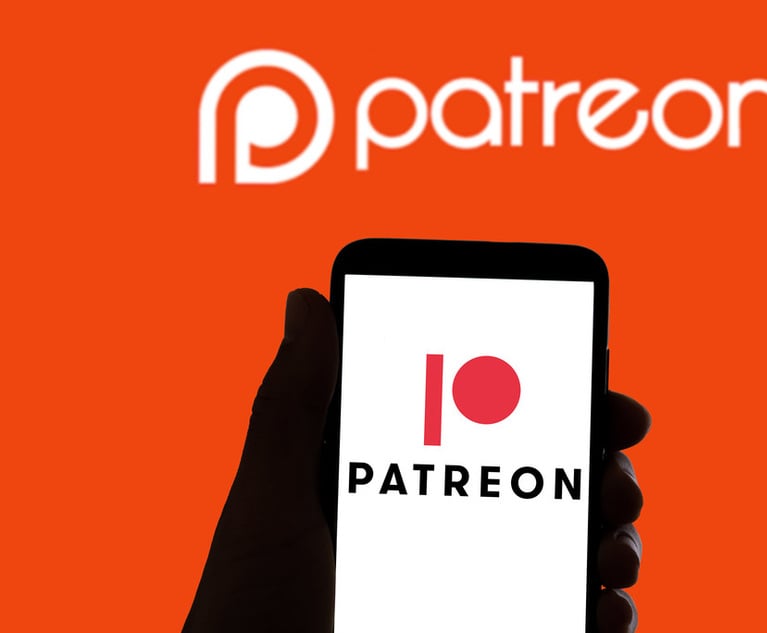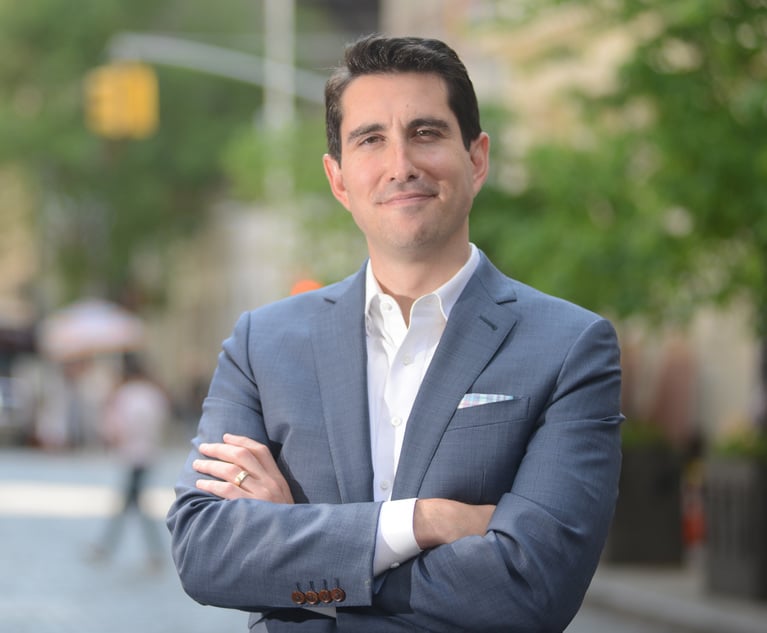Another Judge Turns Back Lyft Driver Worker Reclassification Attempt Amid Pandemic
San Francisco Superior Judge Ethan Schulman denied a motion that would have reclassified Lyft drivers as employees, so that they can reap the state's paid sick leave, agreeing with a federal judge who found that such a ruling would jeopardize drivers' access to federal coronavirus relief.
May 01, 2020 at 05:09 PM
5 minute read
 Lyft driver lounge called the Hub, located at 2300 26th St. in San Francisco. (Photo: Jason Doiy/ALM)
Lyft driver lounge called the Hub, located at 2300 26th St. in San Francisco. (Photo: Jason Doiy/ALM)
A California state court judge has refused to grant an emergency motion in a case against Lyft Inc. that would reclassify drivers as employees, so that they can take advantage of state-mandated paid sick leave during the coronavirus pandemic.
In an order Thursday, Judge Ethan Schulman of San Francisco County Superior Court denied the Lyft drivers' emergency motion for preliminary injunction and granted motions brought by Lyft's Keker, Van Nest & Peters counsel to compel arbitration and stay the case.
Schulman agreed with U.S. District Judge Vincent Chhabria of the Northern District of California, who remanded the case to state court in April after finding that granting the motion could mean Lyft drivers would lose out on "thousands of dollars" of relief designated for independent contractors in federal coronavirus legislation.
 Judge Ethan Schulman, San Francisco Superior Court (courtesy photo)
Judge Ethan Schulman, San Francisco Superior Court (courtesy photo)Schulman said plaintiffs counsel at Lichten & Liss-Riordan failed to address the essential point of Chhabria's decision: "the extraordinary relief Plaintiffs seek would provide at most … modest benefits to a small subset of Lyft drivers, while potentially risking the eligibility of all Lyft drivers to receive substantially greater relief under the emergency federal legislation," he wrote.
Schulman contended that if he granted the motion, the maximum of three days of paid sick leave would be paltry, with records showing that about 41% of the drivers might not receive any time off at all, compared with the two weeks of paid time off and $600 a week in unemployment compensation from the Coronavirus Aid, Relief, and Economic Security (CARES) Act.
The judge also noted "well-grounded" concerns expressed in an amicus brief submitted by former California Govs. Gray Davis and Arnold Schwarzenegger, who argued that granting the motion would "undermine or interfere with legislative efforts to extend relief in the crisis caused by the coronavirus pandemic."
Lichten & Liss-Riordan's Shannon Liss-Riordan said she was disappointed by the decision and has already filed an appeal.
"The judge took Lyft at its word that obtaining sick pay benefits under state law would somehow risk drivers not being able to obtain the new federal benefits, and that's just not correct," she wrote in an email. "It is also unconscionable for Lyft to refuse to comply with California law that obviously applies to it and attempt to shift its burden to the federal government and ultimately taxpayers."
She also said she was surprised that the judge took into consideration "the clearly political" amicus brief from the governors.
"We noted that Governors Schwarzenegger's and Davis' former chief of staff Susan Kennedy now works for Lyft and she was fined more than $30,000 several years ago for not registering as a lobbyist for Lyft," she wrote.
Although amicus briefs are somewhat unusual in superior court, Benjamin Shatz of Manatt, Phelps & Phillips in Los Angeles and counsel to the governors, said that the Lyft drivers' action was important enough for the former politicians to share their input.
"Govs. Davis and Schwarzenegger care deeply about California, understand California's economy and recognized that the emergency public injunction the plaintiffs sought was unwarranted and would be harmful under the circumstances of COVID-19," Shatz said in an email. "We were very pleased the Court granted permission for the amicus brief and even happier that the brief was useful in the Court's analysis."
He also emphasized that the case was about "forced reclassification in the middle of a national emergency, not about sick leave."
A representative for Lyft declined to comment directly on the decision.
Earlier this week, Lichten & Liss-Riordan and Gibson, Dunn & Crutcher announced that, after nine sessions of mediation with U.S. Magistrate Judge Joseph Spero, they resolved an identical complaint against Uber Technologies Inc. U.S. District Judge Edward Chen of the Northern District of California ordered the parties to meet in order to come up with a solution that makes it easier for drivers to take advantage of Uber's coronavirus relief programs without having to access overburdened and sometimes costly health care providers. As part of the agreement, Uber rolled out another financial assistance program that allows eligible California drivers to collect $360 in financial assistance without having to show a letter from a health official or doctor, as previous policies mandated.
This content has been archived. It is available through our partners, LexisNexis® and Bloomberg Law.
To view this content, please continue to their sites.
Not a Lexis Subscriber?
Subscribe Now
Not a Bloomberg Law Subscriber?
Subscribe Now
NOT FOR REPRINT
© 2025 ALM Global, LLC, All Rights Reserved. Request academic re-use from www.copyright.com. All other uses, submit a request to [email protected]. For more information visit Asset & Logo Licensing.
You Might Like
View All
Patreon Hit With Lawsuit for Allegedly Diverting Subscriber Data to Meta

Kraken’s Chief Legal Officer Exits, Eyes Role in Trump Administration
3 minute read
‘Facebook’s Descent Into Toxic Masculinity’ Prompts Stanford Professor to Drop Meta as Client
6 minute read
Miami Judge Approves Shaq's $11 Million Settlement to Resolve Astrals Investor Claims
3 minute readLaw Firms Mentioned
Trending Stories
- 1'A Death Sentence for TikTok'?: Litigators and Experts Weigh Impact of Potential Ban on Creators and Data Privacy
- 2Bribery Case Against Former Lt. Gov. Brian Benjamin Is Dropped
- 3‘Extremely Disturbing’: AI Firms Face Class Action by ‘Taskers’ Exposed to Traumatic Content
- 4State Appeals Court Revives BraunHagey Lawsuit Alleging $4.2M Unlawful Wire to China
- 5Invoking Trump, AG Bonta Reminds Lawyers of Duties to Noncitizens in Plea Dealing
Who Got The Work
J. Brugh Lower of Gibbons has entered an appearance for industrial equipment supplier Devco Corporation in a pending trademark infringement lawsuit. The suit, accusing the defendant of selling knock-off Graco products, was filed Dec. 18 in New Jersey District Court by Rivkin Radler on behalf of Graco Inc. and Graco Minnesota. The case, assigned to U.S. District Judge Zahid N. Quraishi, is 3:24-cv-11294, Graco Inc. et al v. Devco Corporation.
Who Got The Work
Rebecca Maller-Stein and Kent A. Yalowitz of Arnold & Porter Kaye Scholer have entered their appearances for Hanaco Venture Capital and its executives, Lior Prosor and David Frankel, in a pending securities lawsuit. The action, filed on Dec. 24 in New York Southern District Court by Zell, Aron & Co. on behalf of Goldeneye Advisors, accuses the defendants of negligently and fraudulently managing the plaintiff's $1 million investment. The case, assigned to U.S. District Judge Vernon S. Broderick, is 1:24-cv-09918, Goldeneye Advisors, LLC v. Hanaco Venture Capital, Ltd. et al.
Who Got The Work
Attorneys from A&O Shearman has stepped in as defense counsel for Toronto-Dominion Bank and other defendants in a pending securities class action. The suit, filed Dec. 11 in New York Southern District Court by Bleichmar Fonti & Auld, accuses the defendants of concealing the bank's 'pervasive' deficiencies in regards to its compliance with the Bank Secrecy Act and the quality of its anti-money laundering controls. The case, assigned to U.S. District Judge Arun Subramanian, is 1:24-cv-09445, Gonzalez v. The Toronto-Dominion Bank et al.
Who Got The Work
Crown Castle International, a Pennsylvania company providing shared communications infrastructure, has turned to Luke D. Wolf of Gordon Rees Scully Mansukhani to fend off a pending breach-of-contract lawsuit. The court action, filed Nov. 25 in Michigan Eastern District Court by Hooper Hathaway PC on behalf of The Town Residences LLC, accuses Crown Castle of failing to transfer approximately $30,000 in utility payments from T-Mobile in breach of a roof-top lease and assignment agreement. The case, assigned to U.S. District Judge Susan K. Declercq, is 2:24-cv-13131, The Town Residences LLC v. T-Mobile US, Inc. et al.
Who Got The Work
Wilfred P. Coronato and Daniel M. Schwartz of McCarter & English have stepped in as defense counsel to Electrolux Home Products Inc. in a pending product liability lawsuit. The court action, filed Nov. 26 in New York Eastern District Court by Poulos Lopiccolo PC and Nagel Rice LLP on behalf of David Stern, alleges that the defendant's refrigerators’ drawers and shelving repeatedly break and fall apart within months after purchase. The case, assigned to U.S. District Judge Joan M. Azrack, is 2:24-cv-08204, Stern v. Electrolux Home Products, Inc.
Featured Firms
Law Offices of Gary Martin Hays & Associates, P.C.
(470) 294-1674
Law Offices of Mark E. Salomone
(857) 444-6468
Smith & Hassler
(713) 739-1250






